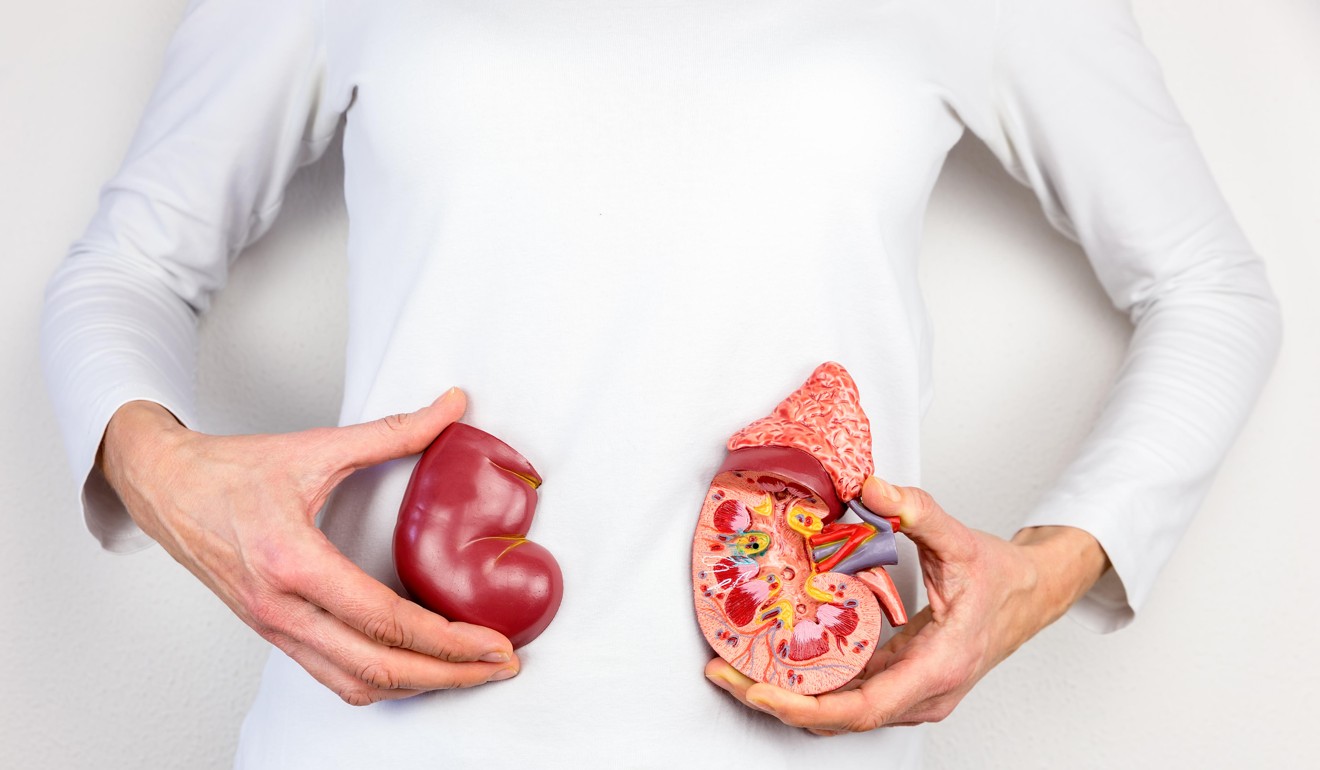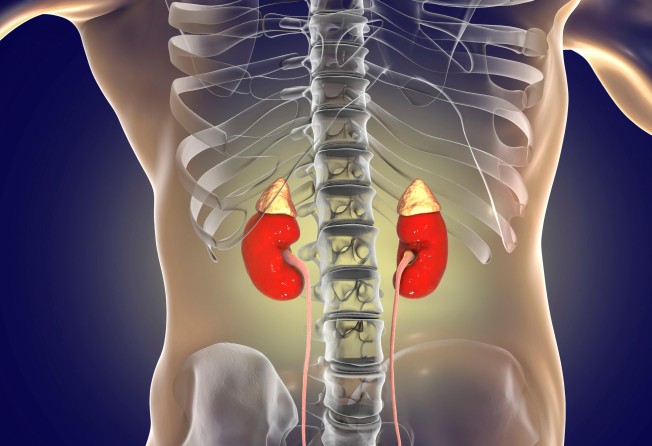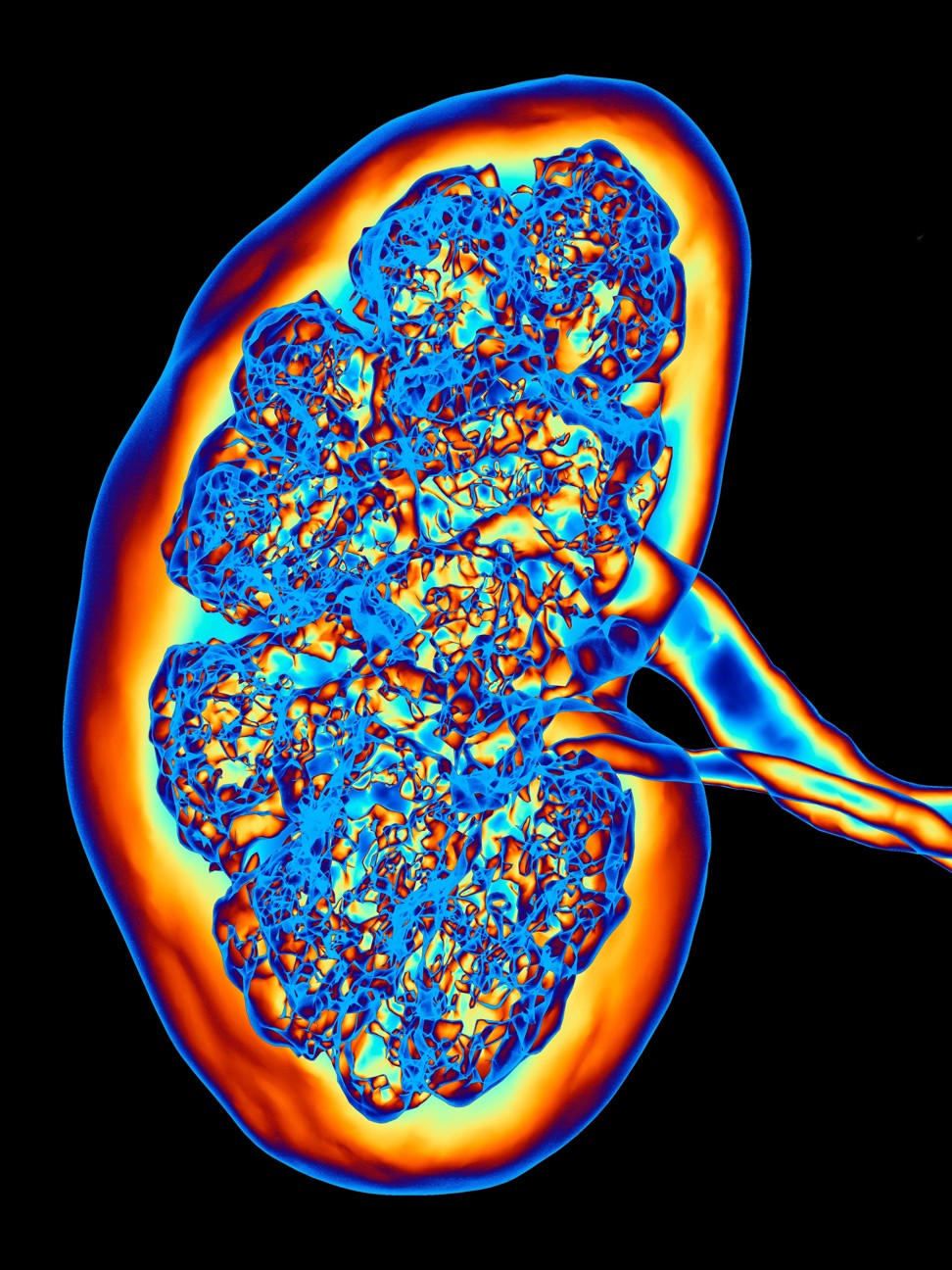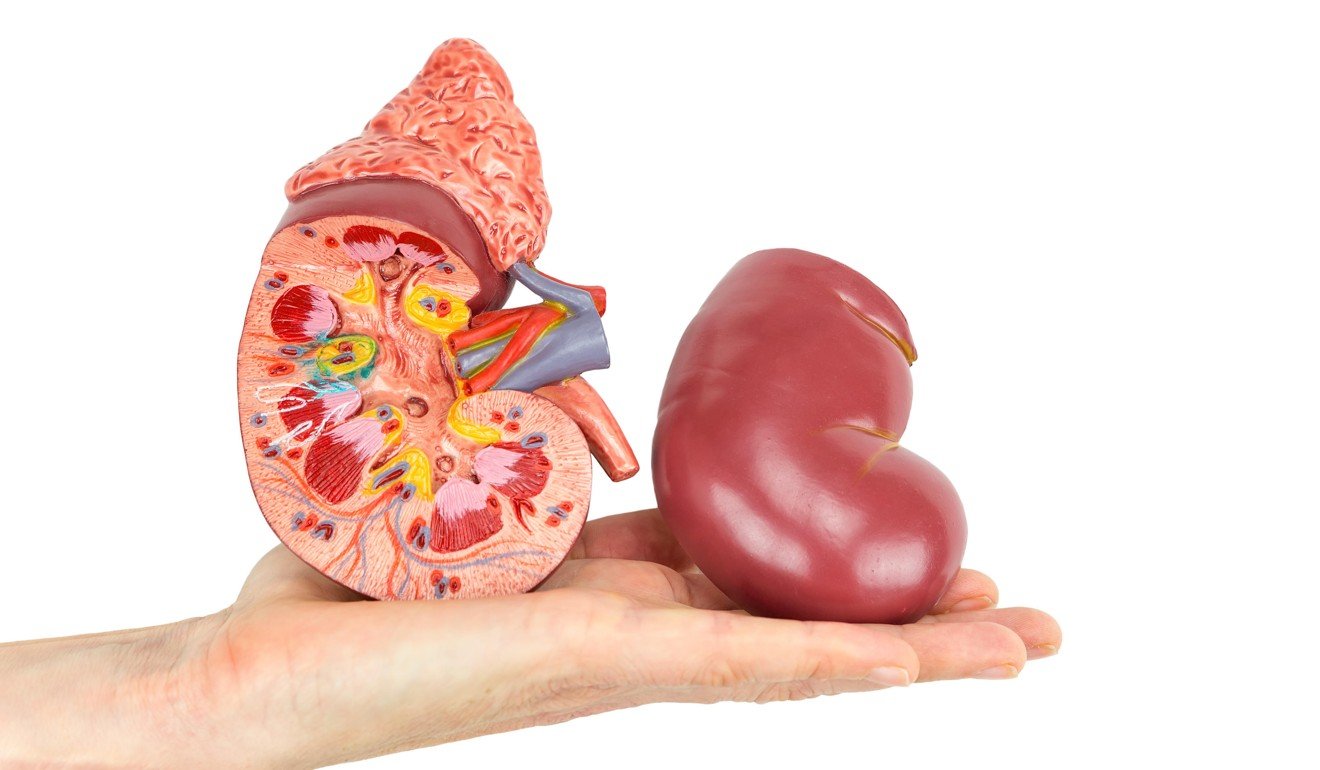
The kidneys: how they work and the best ways to keep them healthy
- Kidneys filter the blood and strain out waste products and water, which end up as urine
- Hypertension and diabetes are common causes of kidney disease, the risk of which can be lowered with a diet low in salt and red meat

Kidneys usually come in pairs and each is about as big as a computer mouse or a regular mobile phone. Shaped like beans, they live just below the rib cage on either side of the spine. Each one weighs about 142 grams (five ounces) and is about 13 centimetres (five inches) in length.
Some babies are born with just one. This often grows to the weight of a combined pair of healthy kidneys and if it stays healthy, will do the job of a pair perfectly well on its own.
The kidneys and urine have been the source of interest, examination and discussion for centuries. Greek philosopher Aristotle described the kidneys as “not present for necessity in animals but have the function of perfecting the animal itself”.
He got that wrong – kidney function is vital for life. Blood flow through the kidneys is substantial; though they weigh just 0.5 per cent of the entire average body weight, they receive more arterial blood than any other organ in the body.

They serve as effective little filters and their primary job is to maintain a constant level of fluid in the body. They filter blood at the rate of about half a cup a minute and strain out waste products and water, which end up as urine.
The kidneys are connected to the bladder via tubes called ureters: in a day your kidneys can filter 142 litres of blood and produce one litre of urine. They strike a fine balancing act in ensuring levels of water, salts and minerals in the body’s blood remain stable. If this precarious balance is tipped, your whole body system – nerves, muscles – just will not work as well.
What makes the kidneys such effective filters though? Each of your kidneys contain at least a million, and up to two million, filtering units called nephrons – the word comes from the Greek nephros, which means kidney.

Each nephron includes a filter, the glomerulus, and a tubule. The glomerulus filters your blood, and the tubule then sorts the wheat from the chaff as it were: it returns useful substances to your blood and removes waste products.
When a person gets to about 40, the number of nephrons in each kidney begins to drop, falling at a rate of around 1 per cent a year. But your sturdy older kidneys keep going because remaining nephrons get bigger which means that though fewer, they’re larger, so can still carry a big load.
If one kidney is taken away and the functional capacity of the other kidney reduced to just 75 per cent, it could still sustain life simply because those clever little nephrons are capable of enlarging and handling the excess load.
Your kidneys aren’t just useful at getting rid of the rubbish. They serve other important roles in the body such as helping to control blood pressure.

Electrolytes influence the amount of fluid in the body. When electrolyte levels are high, the body retains more water. They work like rehydration medication, which introduces electrolytes into your system when you may be dehydrated from diarrhoea or vomiting.
High electrolytes in turn elevate the volume of blood which in turn leads to higher blood pressure.
Eating too much salt or too many salty snacks raises the levels of sodium in your blood which, if it gets too high, tips the delicate balance the kidneys are trying to manage and upsets their ability to remove the excess water. The result is a higher – and sometimes too high – blood pressure.
Dr Angela Wang Yee-moon is honorary associate professor at the University of Hong Kong and president of the International Society of Renal Nutrition and Metabolism. Last year she was awarded the Joel D Kopple Award of the National Kidney Foundation, the first nephrologist (kidney specialist) outside the US to receive this award.
Wang says that hypertension – the sometimes dangerous elevation of blood pressure that can result from too many salty foods in a diet – is among the most common causes of kidney disease.
Another is diabetes where high blood sugar can damage the small blood vessels in the body, including those in your kidneys. If this happens, your kidneys do not filter your blood as efficiently and will retain more water and salt leading to waste build-up, which is harmful to kidneys.
Diabetes can also cause damage to your nerve systems which may make it difficult to empty your bladder. This may damage your kidneys from a combination of pressure and bacteria build up.

Acute kidney injury is life threatening as it can quickly be fatal without treatment due to the accumulation of metabolic waste. Urgent dialysis treatment is usually necessary to replace the job of the kidneys to help remove these metabolic wastes and fluids until kidney function recovers.
Acute kidney injury is not always reversible and is a cause of chronic kidney disease, so we need to look after them, Wang says. To do that, we should follow a healthy diet that is low in salt and red meat and includes plenty of fruits and vegetables. We need to exercise enough, drink plenty of water and stop smoking.

Be careful not to abuse over-the-counter drugs, especially pain killers, which can damage kidneys.
In addition, we must be mindful of our blood pressure and prevent or control hypertension and diabetes.
Diabetic nephropathy, which is kidney damage caused by diabetes, accounts for 45 per cent of the causes of end-stage kidney disease (ESKD) in Hong Kong, Wang says.
Ageing itself may also harm kidney function. Primary glomerulonephritis, she says, accounts for around 30 per cent of the causes of ESKD in Hong Kong. Ten per cent are the result of hereditary kidney disease and in 30 per cent of cases, causes of kidney disease go unidentified.